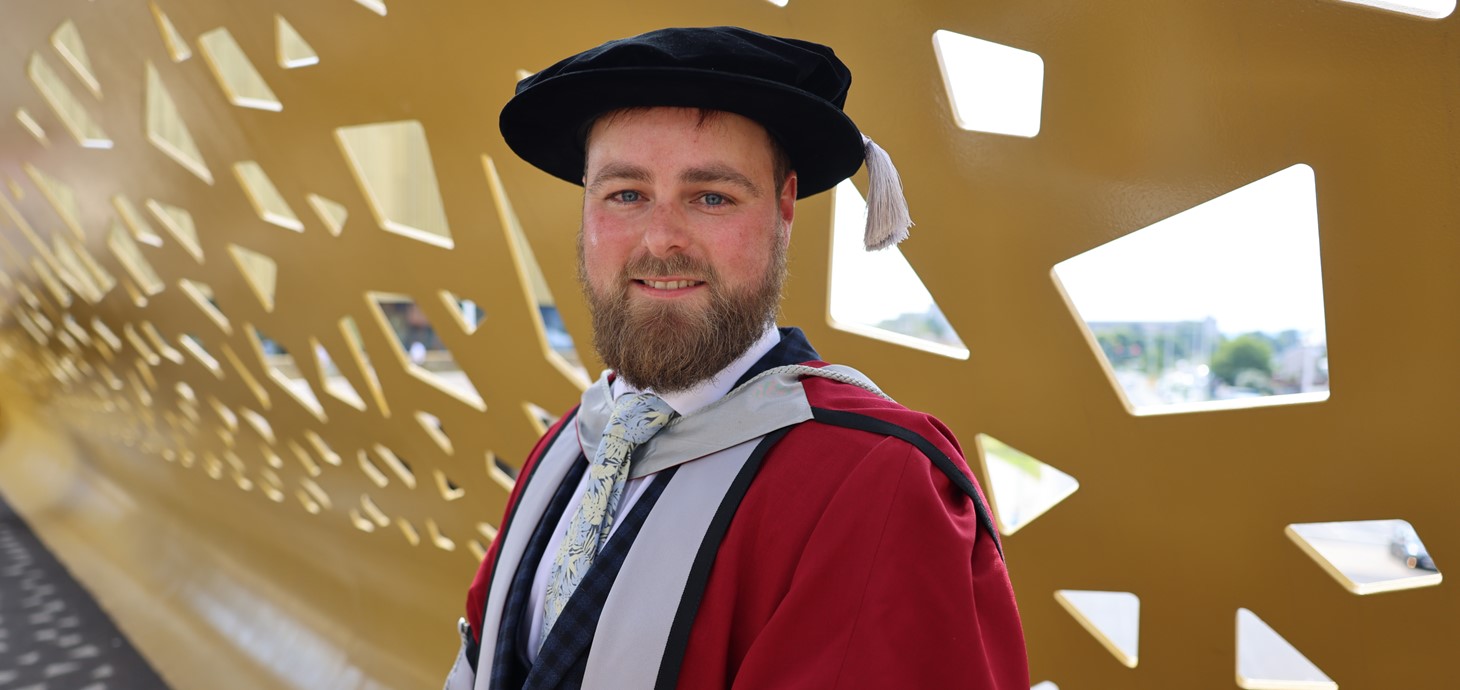
A marine biology student who chose Swansea University for his Bachelor’s and Master’s degrees has now made it a hat-trick by graduating with a PhD in Biological Sciences.
William Kay, 30, is originally from Penrhyn Bay. He received his PhD at the University’s graduation ceremony for his research on the impacts of marine renewable energy developments on seals. This project involved tracking wild seals in Wales and Germany with tags that Will had built himself.
All of Will’s studies have been in Swansea University’s biosciences department, which was ranked 3rd in the UK for student experience by The Times in 2021.
Will explained the research he conducted for his PhD: “We face a climate emergency. One crucial way to tackle it is with green electricity generation, such as marine renewable energy (MRE). However, MRE developments may threaten some of our most important marine life, including seals.
"I researched the behaviour and movement of seals, monitoring them using bio-logging devices developed at Swansea University. These enabled me to assess the potential risk that MRE developments pose and help advise mitigation measures to minimize harm. My findings will help to protect marine life and support the MRE industry.”
Will started his decade-long career at Swansea in 2010, studying BSc (Hons) Marine Biology. This practical degree saw him undertake a range of fieldwork activities, including time spent at sea on Swansea University’s research vessel.
In the final year of his undergraduate course, Will won a Swansea Employability Academy Award, enabling him to travel to Patagonia to undertake his dissertation on the foraging ecology of magellanic penguins. Will graduated with First Class Honours, winning the Graham Ralston Memorial Prize in Marine Biology.
After obtaining a postgraduate scholarship, Will returned to Swansea University to study an MSc (Res) in Animal Movement Science in 2014. This saw him research the movements and diving behaviour of harbour seals in Germany.
Will then undertook his PhD, during which he presented his research at numerous international conferences, including in Denmark, Italy, and Belgium. He also established interdisciplinary collaborations, for example with aerospace engineers to design hydrodynamic animal tracking tags.
Outside his studies Will dedicated his spare time to the Swansea University Sub Aqua Club (SUSAC) where he learnt to SCUBA dive. He trained as an instructor and became a key member of the club, serving as Captain and Equipment Officer.
Alongside this he lived and worked on Singleton Campus as a Welfare Warden, providing support to new students. He won an Ede and Ravenscroft Prize for outstanding contribution to student life and received an honorary lifetime membership of Swansea University Students’ Union. In addition, in the last year of his study Will was invited to become a member of the Worshipful Livery Company of Wales.
Alongside his PhD, Will undertook a six-month sabbatical in science policy at The Royal Society. He also qualified as an HSE Diver and a Commercial Skipper and used these qualifications in his professional roles as a Boating Officer and Research Technician for Swansea University research projects; SEACAMS2 and Seagrass Ocean Rescue.
Will now works at Cardiff University as a Tutor in Data Analysis and Statistics, teaching in the School of Biosciences.
Reflecting on his time as a Swansea student, Will said: “My years at Swansea were the most formative of my life and I had a blast! I am immensely grateful to Swansea University for shaping me into the person and professional that I am today, and for giving me a solid foundation from which to pursue a successful career in Higher Education.”
